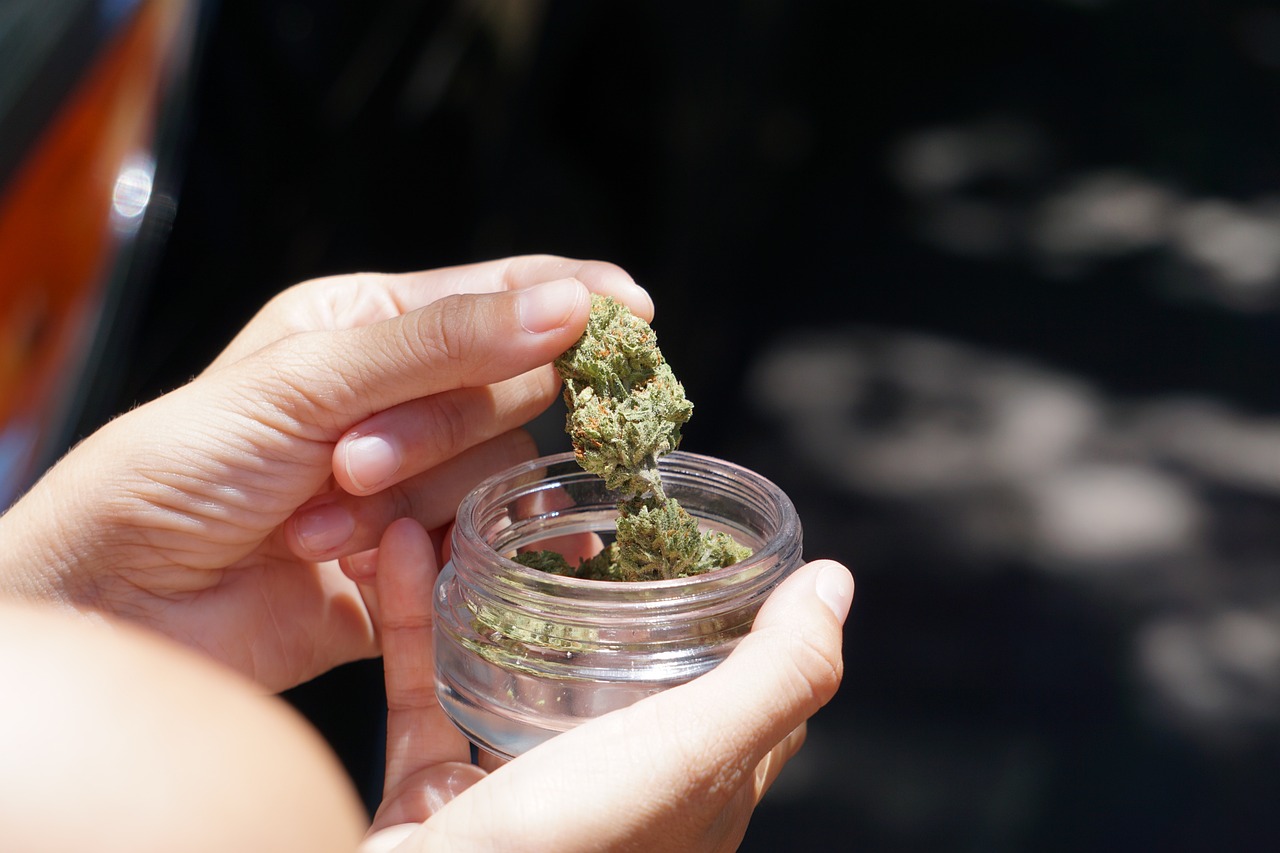Cannabis
The Medical Cannabis Sector in Spain Suffers from the Lack of Investments
The Spanish legislative delay has allowed Portugal to take the lead and establish the foundations to become the productive arm of medical cannabis on the peninsula. In mid-February, the Ministry of Health began the procedures to approve a Royal Decree that gives legal guarantees to this nascent market. The starting point for Health are the conclusions of the Subcommittee of the Congress of Deputies for the analysis of experiences with the regulation of cannabis for medicinal use.

Cold response from the medical cannabis sector to the possible regulation of this plant for medicinal uses. This incipient industry, formed in Spain by only 22 companies, institutes and associations, has cautiously received the new regulation announced by the Ministry of Health .
Legal uncertainty still prevails which, with some exceptions, has not caused investments to skyrocket and, therefore, this sector still depends on public aid. The twenty entities mentioned are all those that have received authorization from the Spanish Agency for Medicines and Health Products (Aemps) for the cultivation of cannabis.
There is notable investment located in some proposals, but also legal uncertainty due to the strict controls imposed on companies that intend to find their place in the medical cannabis value chain. Medical cannabis companies employ between two and 120 people, an average of fifteen workers per entity, according to data collected by PlantaDoce, and there are many that live almost exclusively on public aid. Although orbiting around it are operators that market cannabis derivatives without active ingredients that would take the leap in the face of regulating the medicinal uses of this plant.
Labor relations and employee numbers in the medical cannabis market reflect the embryonic state of this yet-to-be-developed economy. Pablo Pérez Moreno, CEO of the Valencian Intersemillas, explains that, currently, they have six people working in the research area, but that none of them do it full time. This is due, says Pérez, to the fact that research tasks do not generate profits .
Things are going somewhat better for the Andalusian Phytoplant Research, the first to receive a license from the Aemps to work with cannabis for research purposes in 2012. This company has 23 permanent full-time workers and nine temporary permanent workers.
Find more about the medical cannabis sector in Spain and read the most important cannabis news from around the world with the Hemp.im mobile app, available for free for both Android and iOS devices.
Juan Abelló is one of the best-known investors in the medical cannabis sector
The company that, at the moment, has the most resources in the medical cannabis market, Linneo Health, is the product of an alliance between the investor Juan Abelló Gallo and the British fund GHO. Behind Linneo Health is Alcaliber, a company specialized in the production of morphine created in the seventies by Juan Abelló Pascual, father of Abelló Gallo.
The company that manages this pharmaceutical company obtained a license from the Aemps in 2016 to produce and market cannabis. Linnaeus today employs more than 120 people and has access to more than eight million patients worldwide.
The second largest operator of medical cannabis is Medical Plants, after which is Cualin Quality, a company dedicated to the production of tomatoes in the portfolio of the venture capital fund Realza . And it also arises from a commitment by entrepreneurs in the agri-food field MM Medical Flowers, promoted by Tilla, dedicated to the collection and sale of blueberries.
They are closely followed by Sovereign Fields, owned by the Portuguese group Portocanna and employing twelve people, headed by Iker Val, founder and former CEO of Bhalutek, another operator in the sector that employs four people.
Val explains that the Spanish legislative delay has allowed Portugal to take the lead and establish the foundations to become the productive arm of medical cannabis on the peninsula. “In that country you have 35 companies like Linnaeus and Medical Plants and a total of 200 million invested,” said the manager, who also maintains that what he sees as regulatory problems impede business activity, pointing to the fact that they have hardly been introduced changes in the narcotics law of 1967.
“You have to be prepared and have a solid economic cushion to hold out until effective regulation arrives,” he laments. According to him, not even 20% of the existing companies in this market would be viable without some type of public support.
Criticism of excessive restriction is a constant among executives in the sector. Joaquín Morales, CEO of Oils4Cure, tells this newspaper in this same sense that the control of products derived from cannabis complicates mobility, since authorizations must always be pending .
For Iker Val, furthermore, it remains to be seen how issues such as who will prescribe cannabis products will be resolved, how much time in advance it will be necessary to demonstrate that priority treatments do not work to request the cannabis-based alternative or how many doctors will know how to overcome the stigma associated with this plant.
In any case, companies dedicated to the commercialization of cannabidiol (CBD), believe that there is room for the development of a health market that involves cannabis-based substances. CBD is a cannabis-based compound that does not contain any psychoactive ingredients, so its marketing is legal .
Alejandro Martí, one of the two CEOs of Votum, recalls that Spanish legislation is less restrictive with cannabis products that are applied externally, such as medicinal oils and cosmetics . Martí said that they are already investigating the anti-inflammatory properties of some cannabis derivatives and that they do not rule out the marketing of products that contain psychoactive ingredients if their use is finally regularized.
In mid-February, the Ministry of Health began the procedures to approve a Royal Decree that gives legal guarantees to this nascent market. The starting point for Health are the conclusions of the Subcommittee of the Congress of Deputies for the analysis of experiences with the regulation of cannabis for medicinal use.
Currently, the Ministry is collecting contributions from civil society, including operators in the sector. But, in the words of Iker Val, the process of normalizing the consumption of this plant can take several years, as the German case demonstrates.
__
(Featured image by elsaolofsson via Pixabay)
DISCLAIMER: This article was written by a third party contributor and does not reflect the opinion of Born2Invest, its management, staff or its associates. Please review our disclaimer for more information.
This article may include forward-looking statements. These forward-looking statements generally are identified by the words “believe,” “project,” “estimate,” “become,” “plan,” “will,” and similar expressions. These forward-looking statements involve known and unknown risks as well as uncertainties, including those discussed in the following cautionary statements and elsewhere in this article and on this site. Although the Company may believe that its expectations are based on reasonable assumptions, the actual results that the Company may achieve may differ materially from any forward-looking statements, which reflect the opinions of the management of the Company only as of the date hereof. Additionally, please make sure to read these important disclosures.
First published in PlantaDoce. A third-party contributor translated and adapted the articles from the originals. In case of discrepancy, the originals will prevail.
Although we made reasonable efforts to provide accurate translations, some parts may be incorrect. Born2Invest assumes no responsibility for errors, omissions or ambiguities in the translations provided on this website. Any person or entity relying on translated content does so at their own risk. Born2Invest is not responsible for losses caused by such reliance on the accuracy or reliability of translated information. If you wish to report an error or inaccuracy in the translation, we encourage you to contact us

-

 Biotech1 week ago
Biotech1 week agoWhy Bioceres Shares Slide Into Penny Stock Territory
-

 Africa6 days ago
Africa6 days agoAgadir Allocates Budget Surplus to Urban Development and Municipal Projects
-

 Cannabis2 weeks ago
Cannabis2 weeks agoKONOPEX Expo 2026: Celebrating Europe’s New Era of Legal Cannabis
-

 Biotech3 days ago
Biotech3 days agoVolatile Outlook for Enlivex Therapeutics as Investors Await Clinical Catalysts



















